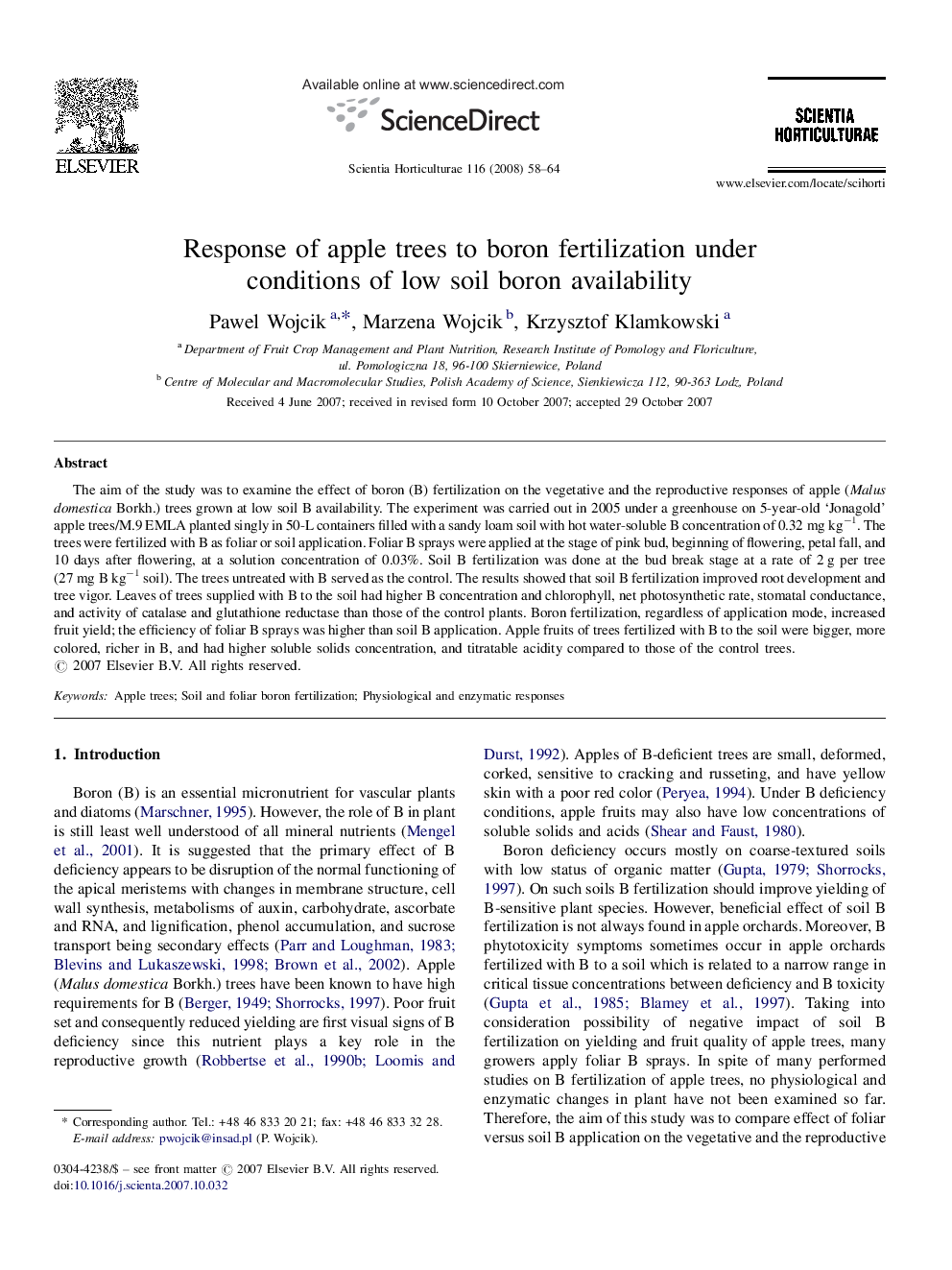| Article ID | Journal | Published Year | Pages | File Type |
|---|---|---|---|---|
| 4569541 | Scientia Horticulturae | 2008 | 7 Pages |
Abstract
The aim of the study was to examine the effect of boron (B) fertilization on the vegetative and the reproductive responses of apple (Malus domestica Borkh.) trees grown at low soil B availability. The experiment was carried out in 2005 under a greenhouse on 5-year-old 'Jonagold' apple trees/M.9 EMLA planted singly in 50-L containers filled with a sandy loam soil with hot water-soluble B concentration of 0.32 mg kgâ1. The trees were fertilized with B as foliar or soil application. Foliar B sprays were applied at the stage of pink bud, beginning of flowering, petal fall, and 10 days after flowering, at a solution concentration of 0.03%. Soil B fertilization was done at the bud break stage at a rate of 2 g per tree (27 mg B kgâ1 soil). The trees untreated with B served as the control. The results showed that soil B fertilization improved root development and tree vigor. Leaves of trees supplied with B to the soil had higher B concentration and chlorophyll, net photosynthetic rate, stomatal conductance, and activity of catalase and glutathione reductase than those of the control plants. Boron fertilization, regardless of application mode, increased fruit yield; the efficiency of foliar B sprays was higher than soil B application. Apple fruits of trees fertilized with B to the soil were bigger, more colored, richer in B, and had higher soluble solids concentration, and titratable acidity compared to those of the control trees.
Keywords
Related Topics
Life Sciences
Agricultural and Biological Sciences
Horticulture
Authors
Pawel Wojcik, Marzena Wojcik, Krzysztof Klamkowski,
